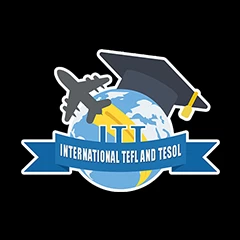Unlock Your Teaching Potential: A Comprehensive Guide to ESL Certification for English Language Instructors
In today’s globalized world, the demand for proficient English language instructors has never been greater. Whether you’re an aspiring educator or a seasoned professional looking to elevate your teaching career, obtaining ESL certification can be your gateway to success. “Unlock Your Teaching Potential” is your comprehensive guide to navigating the often complex landscape of English as a Second Language certification. From understanding different certification options to exploring essential teaching methodologies, this resource will equip you with the knowledge required to thrive in diverse classroom settings. Discover how to enhance your skills, increase your employability, and make a meaningful impact in your students’ lives. Step into the world of ESL teaching with confidence, and unlock your full potential today!
Understanding ESL Certification: What You Need to Know
In the realm of education, ESL certification stands as a cornerstone for instructors dedicated to teaching English to non-native speakers. Understanding what ESL certification entails is crucial for anyone considering a career in this field. ESL, or English as a Second Language, certification is a credential that validates an instructor’s ability to teach English to students whose first language is not English. This certification ensures that instructors are equipped with the necessary knowledge and skills to address the unique challenges faced by ESL learners.
The process of obtaining ESL certification typically involves a combination of coursework, practical teaching experience, and examinations. Coursework may cover areas such as language acquisition theories, teaching methodologies, classroom management, and cultural sensitivity. Practical teaching experience, often referred to as a practicum, allows aspiring instructors to apply their learning in real-world settings under the supervision of experienced educators. Examinations, on the other hand, assess an instructor’s understanding of the material covered and their ability to implement effective teaching strategies.
ESL certification can vary widely depending on the country or institution offering the program, but the fundamental goal remains the same: to prepare educators to meet the diverse needs of ESL students. Whether you aim to teach in a public school, a private language institute, or online, obtaining ESL certification is a pivotal step in establishing your credibility and competence as an English language instructor.
The Importance of ESL Certification for Instructors
Obtaining ESL certification is not just a formality; it is a significant milestone that can profoundly impact an instructor’s career and effectiveness in the classroom. Firstly, ESL certification enhances an instructor’s employability. Schools, language institutes, and online education platforms often require or prefer certified instructors, as this credential assures them of the instructor’s proficiency and dedication to teaching English as a second language. Employers value certified instructors because they bring a structured, informed approach to language teaching, which is crucial for student success.
Moreover, ESL certification equips instructors with specialized skills and knowledge that are essential for addressing the unique needs of ESL learners. ESL students come from diverse linguistic and cultural backgrounds, and they face different challenges compared to native English speakers. Certified instructors are trained to use effective teaching methodologies, create inclusive classroom environments, and implement strategies that foster language acquisition while respecting cultural differences. These skills are vital for helping students overcome language barriers and achieve their educational goals.
Finally, ESL certification provides instructors with a sense of professional satisfaction and confidence. The rigorous training and assessment involved in obtaining certification ensure that instructors are well-prepared to handle the complexities of teaching English as a second language. This confidence translates into more effective teaching and better outcomes for students. Furthermore, certification opens up opportunities for professional development and career advancement, allowing instructors to continually improve their skills and expand their career prospects.
Types of ESL Certification Programs Available
Aspiring ESL instructors have a variety of certification programs to choose from, each catering to different needs and career goals. One of the most common types is the TEFL (Teaching English as a Foreign Language) certification, which is designed for instructors who plan to teach English in countries where English is not the primary language. TEFL programs typically focus on practical teaching skills and cultural adaptation, making them ideal for educators looking to work abroad.
Another popular option is TESOL (Teaching English to Speakers of Other Languages) certification, which encompasses both TEFL and TESL (Teaching English as a Second Language) methodologies. TESOL certification is versatile and widely recognized, making it suitable for teaching English in both English-speaking and non-English-speaking countries. TESOL programs often emphasize linguistic theory, curriculum design, and advanced teaching techniques, providing a comprehensive foundation for ESL instructors.
For those aiming to teach in the United States or other English-speaking countries, TESL certification is particularly relevant. This certification focuses on teaching English to non-native speakers living in environments where English is the dominant language. TESL programs address issues such as language integration, multicultural education, and the specific needs of immigrant and refugee students. Additionally, there are specialized certifications like CELTA (Certificate in English Language Teaching to Adults) and DELTA (Diploma in English Language Teaching to Adults), which are offered by Cambridge Assessment English and are highly respected in the field of adult education.
Key Requirements for ESL Certification
The path to ESL certification involves meeting several key requirements, which may vary depending on the specific program and institution. Firstly, most certification programs require candidates to have a certain level of education. A bachelor’s degree is often a minimum requirement, although some programs may accept candidates with an associate degree or equivalent experience. The field of study is not always specified, but degrees in education, linguistics, or English are advantageous.
In addition to educational prerequisites, candidates must complete a specified number of hours of coursework and practical teaching experience. Coursework typically covers essential topics such as language acquisition theories, instructional strategies, classroom management, and cultural competence. The practical component, often referred to as a teaching practicum, involves supervised teaching practice in real classrooms or simulated environments. This hands-on experience is crucial for developing effective teaching skills and gaining confidence.
Examinations are another critical requirement for ESL certification. These exams assess a candidate’s understanding of the coursework and their ability to apply teaching methodologies effectively. The format and content of the exams can vary, but they generally include both written and practical components. Some certification programs also require candidates to demonstrate proficiency in English through standardized tests like the TOEFL (Test of English as a Foreign Language) or IELTS (International English Language Testing System). Meeting these requirements ensures that certified instructors are well-prepared to deliver high-quality ESL education.
How to Choose the Right ESL Certification Program
Selecting the right ESL certification program is a pivotal decision that can influence your teaching career and professional development. To make an informed choice, start by identifying your career goals and the specific requirements of the job market where you intend to teach. Research the types of certification programs available, such as TEFL, TESOL, TESL, CELTA, and DELTA, and consider which aligns best with your aspirations and the demands of potential employers.
Next, evaluate the credibility and recognition of the certification program. Choose programs offered by reputable institutions or organizations with a history of providing high-quality education and training. Accreditation is a key factor; ensure that the program is accredited by recognized educational bodies. Accredited programs adhere to established standards and provide assurance of quality and rigor, which can enhance your employability and professional standing.
Consider the format and flexibility of the certification program. Some programs offer in-person classes, while others provide online or hybrid options. Assess your personal circumstances and learning preferences to determine which format suits you best. Additionally, examine the program’s curriculum and structure. Look for comprehensive coverage of essential topics, practical teaching experience, and support resources such as mentoring and career services. By carefully considering these factors, you can select an ESL certification program that aligns with your needs and sets you on the path to success.
The Application Process for ESL Certification
The application process for ESL certification can vary depending on the program and institution, but it generally involves several key steps. Begin by researching and selecting the certification program that best fits your career goals and qualifications. Once you’ve made your choice, review the program’s admission requirements and ensure you meet the educational prerequisites, such as holding a bachelor’s degree or equivalent experience.
Next, prepare your application materials, which typically include an application form, transcripts, a resume, and letters of recommendation. Some programs may also require a statement of purpose or personal essay outlining your motivations and aspirations as an ESL instructor. Ensure that your application materials are well-organized, professionally presented, and tailored to highlight your relevant skills and experiences.
Submit your application by the specified deadline and follow any additional instructions provided by the program. After submission, you may be required to complete an interview or attend an orientation session. If accepted, you will receive information on enrollment procedures, program schedules, and payment of tuition fees. Throughout the application process, maintain clear communication with the program’s admissions office and seek guidance if needed. By following these steps, you can navigate the application process smoothly and secure your place in an ESL certification program.
Preparing for ESL Certification Exams: Tips and Resources
Preparing for ESL certification exams requires a strategic approach and access to effective resources. Start by familiarizing yourself with the exam format and content areas. Understand the types of questions, whether they are multiple-choice, essay-based, or practical assessments, and identify the key topics that will be covered. This knowledge will help you tailor your study plan and focus on areas that need improvement.
Utilize a variety of study resources to enhance your preparation. Educational textbooks, online courses, and study guides specifically designed for ESL certification exams are invaluable tools. Participate in study groups or forums where you can discuss concepts, share insights, and practice exam questions with fellow candidates. Additionally, seek out practice tests and sample questions to simulate the exam experience and build your test-taking skills.
Effective study habits are essential for success. Create a structured study schedule that allocates sufficient time for each topic and adheres to a consistent routine. Break down complex subjects into manageable sections and use active learning techniques such as summarizing, questioning, and teaching concepts to others. Stay organized, maintain a positive mindset, and seek support from mentors or instructors when needed. By combining these strategies, you can confidently prepare for ESL certification exams and achieve the best possible results.
Continuing Education and Professional Development for ESL Instructors
The field of ESL education is dynamic and continually evolving, making ongoing professional development essential for instructors. Continuing education allows ESL instructors to stay current with the latest teaching methodologies, educational technologies, and linguistic research. Participating in workshops, seminars, and conferences provides opportunities to learn from experts, exchange ideas with peers, and explore innovative practices that can enhance classroom effectiveness.
Advanced certification programs and specialized courses offer avenues for deepening expertise and expanding career prospects. Programs such as DELTA (Diploma in English Language Teaching to Adults) provide advanced training in areas like curriculum design, assessment, and leadership in ESL education. Online courses and webinars offer flexibility for instructors to pursue professional development at their own pace and convenience.
Professional organizations and networks play a crucial role in supporting continuing education. Joining associations like TESOL International Association or local ESL organizations provides access to resources, publications, and professional development opportunities. These networks foster collaboration, mentorship, and advocacy, helping instructors to navigate challenges and advance in their careers. By engaging in continuing education and professional development, ESL instructors can maintain high standards of teaching and contribute meaningfully to the field of language education.
Career Opportunities with ESL Certification
ESL certification opens the door to a wide range of career opportunities, both domestically and internationally. Certified ESL instructors are in high demand in various educational settings, including public and private schools, language institutes, colleges, and universities. Teaching English to non-native speakers in these institutions allows instructors to make a significant impact on students’ language proficiency and academic success.
The global demand for English language instruction creates opportunities for certified instructors to work abroad. Countries around the world seek qualified ESL teachers to support their language education programs. Teaching abroad offers unique experiences, cultural immersion, and the chance to contribute to international education. Many programs provide attractive benefits such as housing, travel allowances, and competitive salaries, making this a rewarding career option.
Online education platforms have expanded the scope of ESL teaching, allowing instructors to reach students globally from the comfort of their homes. Virtual classrooms, one-on-one tutoring, and interactive language courses offer flexible and accessible learning environments. Certified ESL instructors can leverage online platforms to offer personalized instruction, develop curriculum materials, and engage with a diverse student population. With ESL certification, instructors can explore diverse career paths and make a lasting impact on language learners worldwide.
Conclusion: Taking the Next Steps in Your ESL Teaching Journey
Embarking on a career as an ESL instructor is a fulfilling and impactful endeavor. Obtaining ESL certification is a crucial step that equips you with the skills, knowledge, and credentials needed to excel in this field. By understanding the importance of certification, exploring the types of programs available, meeting key requirements, and navigating the application process, you can set a strong foundation for your teaching career.
Preparing for certification exams with effective strategies and resources ensures success and builds confidence. Continuing education and professional development keep you at the forefront of the field, allowing you to adapt to new challenges and opportunities. The diverse career paths available to certified ESL instructors, including teaching in various educational settings, working abroad, and leveraging online platforms, offer exciting prospects for growth and impact.
As you take the next steps in your ESL teaching journey, remember that the commitment to excellence in language education is a lifelong endeavor. Embrace the opportunities for learning, collaboration, and innovation, and strive to make a meaningful difference in the lives of your students. With ESL certification, you unlock your full potential as an educator and contribute to the global community of language learners. Step confidently into the world of ESL teaching and embark on a rewarding and transformative career.








